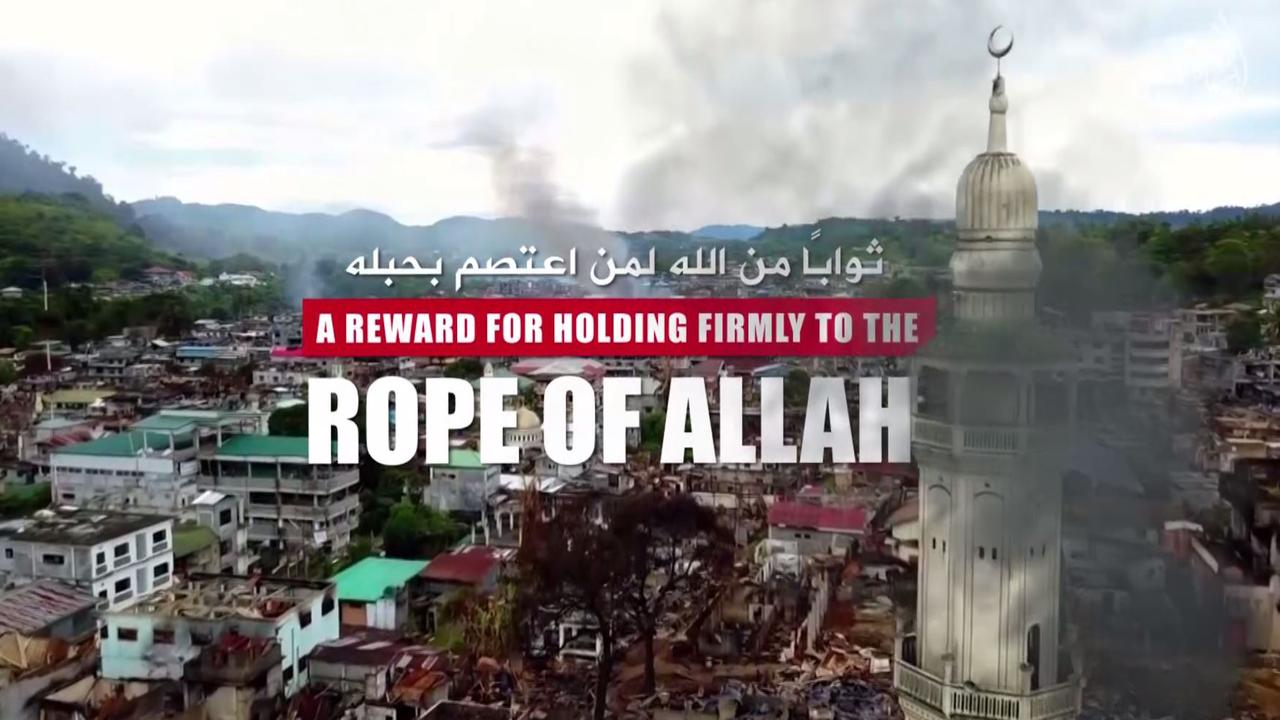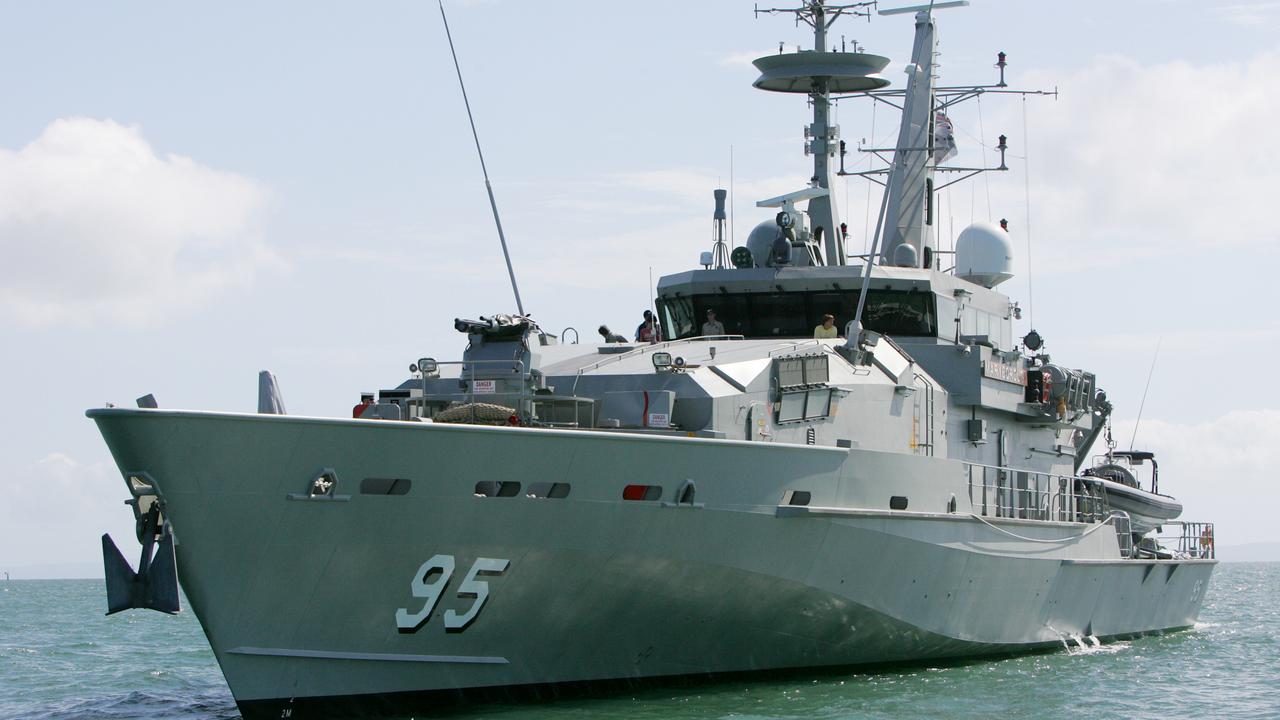Tony Abbott does not rule out involvement in Iraq to aid US ally
TONY Abbott has refused to rule out Australian involvement in any US military action in Iraq.
TONY Abbott has refused to rule out Australian involvement in any military action in Iraq after US President Barack Obama said all options were on the table to deal with jihadist militants surging towards Baghdad.
Mr Abbott, following wideranging discussions with Mr Obama at the White House, said “there is a very serious situation unfolding and America is concerned’’ about developments in Iraq, where government forces are fighting insurgents who are pushing towards the capital.
IRAQ: Militants advance as Obama considers action
The Prime Minister, when asked if Australia would become involved in any military operation, said there was no indication yet of such a request from the US.
“We routinely talk to the Americans when situations like this develop. Those sorts of conversations are now happening but there’s been no indication from the Americans at this stage that they would like us to help,’’ Mr Abbott told the Nine Network.
When pressed, Mr Abbott said “no one can think that this is just a matter for people on the ground in Iraq’’.
“This is a serious situation. It would be a very serious and critical development for the world generally if a large chunk of Iraq was to fall into the hands of al-Qa’ida-type terrorists,’’ he said.
“This would be a humanitarian disaster for the people of Iraq, quite apart from being a very serious problem for the region and the wider world,” he told ABC Radio.
“I want to do what we reasonably can to protect Australian citizens, Australian interests and Australian values, and there is a very strong community of interests and values between the United States and Australia and our other principal allies,” he also told Sky News.
The United States is evacuating Americans in the jihadists’ path, and concerns are also held for dozens of Australians still in Iraq.
Bill Shorten said the opposition would not give “a blank cheque” of support for military intervention, should Washington request Australian aid.
“Australia always needs to weigh up the use of our highly professional and dedicated soldiers as to whether or not it is in the Australian national interest,” the Opposition Leader said in Melbourne.
“Furthermore, historically, Labor did oppose sending troops to Iraq to help out President Bush in his search for weapons of mass destruction (in 2003).”
Greens leader Christine Milne cautioned against Australian involvement in any future military intervention in Iraq.
“We cannot fix the tragedies and conflicts of the Middle east war with more and more war. It is madness,” she said. “Australia needs to redouble efforts at the UN and through multi-lateral diplomatic actions to bring about a lasting peace in Iraq.”
Earlier, at the White House, Mr Abbott told Mr Obama that Australia was doing its part to “secure the freedom and the safety of the world and its citizens” and that Australia would be an “utterly dependable ally” of the US.
“The United States has had to bear many burdens, many burdens. The United States has paid a very high price to secure freedom and prosperity for many countries — not just itself — and the United States should never have to do all that work on its own.”
Mr Abbott’s comments came after Mr Obama said his national security team was “looking at all the options’’ as the crisis in Iraq unfolded, although the White House later clarified that ground troops would be excluded.
“Iraq is going to need more help from the United States and from the international community,’’ Mr Obama said.
“Our national security team is looking at all the options ... I don’t rule out anything.’’
With the militants closing in on the capital, forces from Iraq’s autonomous Kurdish region took control of Kirkuk, an ethnically divided northern city they have sought to rule for decades against the objections of successive governments in Baghdad.
The militants, who have swept up a huge swathe of predominantly Sunni Arab territory in northern and north-central Iraq since launching their offensive in second city Mosul late on Monday, also advanced into ethnically divided Diyala province.
The insurgents captured the town of Dhuluiyah just 90 kilometres from Baghdad, army officers said, as they pushed into a province whose mixed population has made it a byword for violence since the 2003 overthrow of dictator Saddam Hussein.
There are 90 Australians registered on the federal government’s Smartraveller service as being in Iraq, despite the official advice that no one travel to the Middle East nation.
But the true figure is likely higher, as the Department of Foreign Affairs and Trade can only count people who have lodged their details with the government’s travel registry.
There’s no word yet on Australia’s diplomats based in the embassy in Baghdad, or what plans are in place should the situation worsen.
The government has decided that from next year, Australia’s consular staff will move in with their British counterparts in an effort to save money on security.
The government has been trying to boost trade ties with Iraq in recent years through embassy and Austrade officials, and has delivered around $400 million in aid programs over a decade.
Australians also work in agriculture, construction and the resource sector in Iraq, among others areas.
The government has already advised Australians in Mosul, a northern Iraqi city of two million captured by militants, that it can’t help them leave but they should do so immediately if it’s safe.
Additional reporting: AAP


